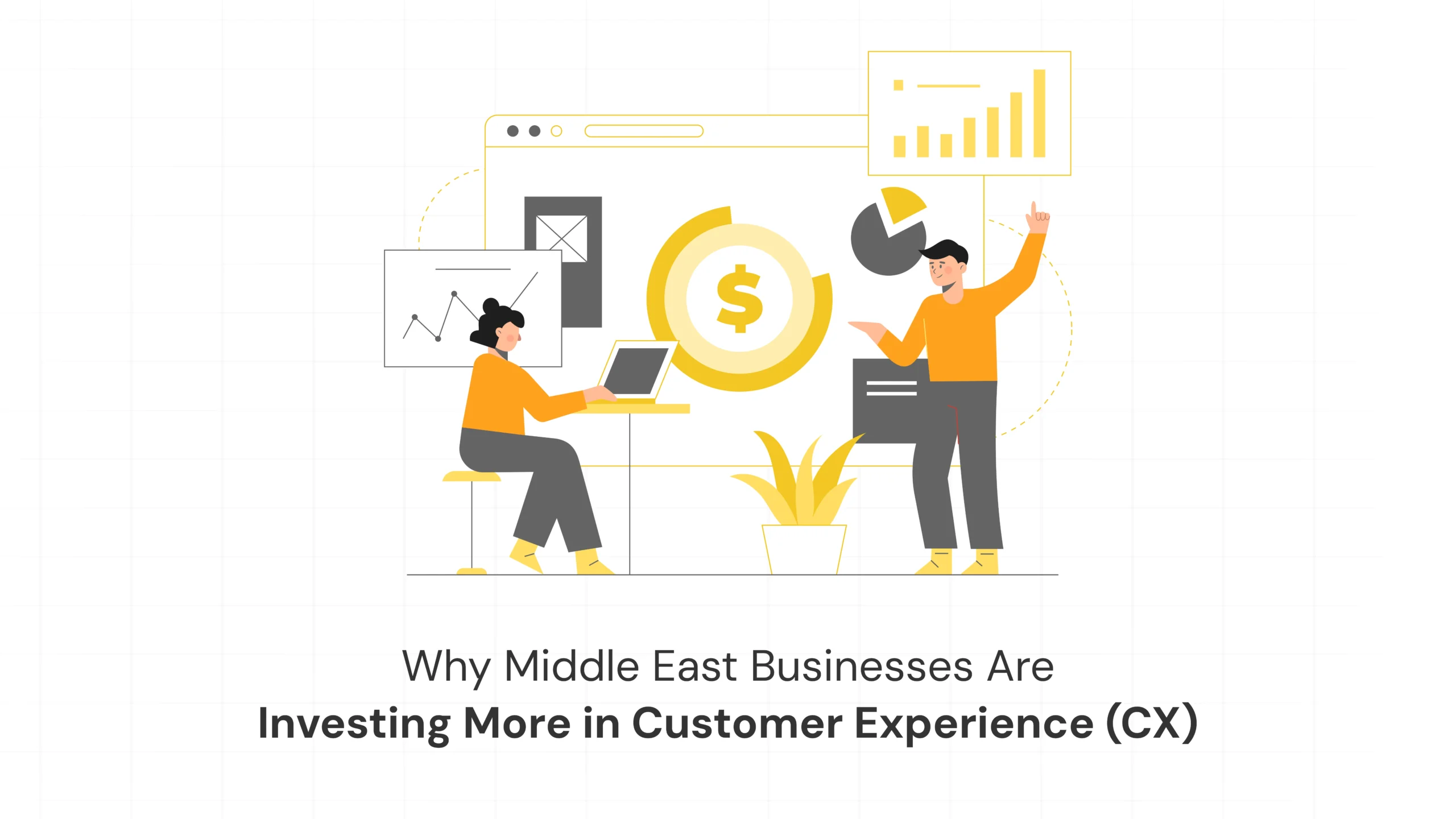
In Customer Experience Middle East, the landscape is a paradigm change. Companies throughout the region no longer only trust product superiority or price competition. Instead, they change resources in customer experience (CX) as a strategic discrimination. This change is not random-it is inspired by the requirements for a cultural inclination, digitally loving consumers, regional competition, and individual involvement.
Why Middle East Businesses Are Investing More in Customer Experience (CX)
- September 2, 2025
- Ayesha J
- 10:00 am
In Customer Experience Middle East, the landscape is a paradigm change. Companies throughout the region no longer only trust product superiority or price competition. Instead, they change resources in customer experience (CX) as a strategic discrimination. This change is not random-it is inspired by the requirements for a cultural inclination, digitally loving consumers, regional competition, and individual involvement.
Let’s discuss business investments in CX Dubai, Riyadh, Abu Dhabi, and other GCC Hubs are at a high level.
The Growing Significance of CX in the Middle East
The Middle East has long been recognized for its ambitious investment in infrastructure, technology, and trade. Nevertheless, in recent years, the customer experience Middle East initiative has become important as the construction of skyscrapers and free spaces.
Consumers today expect spontaneous omnichannel experiences, whether they shop online, book travel, or connect to their banks. According to Deloitte, 62% of GCC consumers will leave a brand after just a negative experience. This state emphasizes why CX strategy GCC is central to the long-term success.
Why Businesses Are Prioritizing CX Over Traditional Marketing
Marketing budgets are still robust in the region, but the emphasis has shifted toward business investment in CX Dubai and beyond. Here’s why:
- Storage is cheaper than procurement: maintaining customers through memorable experiences cuts long-term costs.
- The brand runs in the loyalty competition: With global players entering the area, companies should only distinguish themselves by offering an emotional relationship to offer products.
- Digital-first Consumers’ Demand Impede: Millennial and Gen Z in GCC seek real-time solutions and hyper-personalized interactions.
Companies that excel in customer experience Middle East strategies aren’t just selling—they’re cultivating advocacy.
The Role of Technology in Transforming CX
Digital equipment is ahead of this change. Artificial intelligence, chatbots, prepaid analyzes and CRM platforms help adapt businesses. For example:
- Dubai retail benefits from AI-controlled insights to recommend products based on cultural preferences.
- Bank customers in Saudi Arabia adopt the mobile-first CX model and reduce the friction in the journey.
- Virtual concierges are included in Abu Dhabi’s hospitality industry to make sure visitors feel appreciated even before they arrive.
These technological investments demonstrate how CX strategy GCC combines data-driven decision-making with cultural intuition.
Cultural Nuances Driving CX in the Middle East
- Particularly in this area, CX is not a model that works for everyone. The way that businesses create experiences is greatly influenced by cultural beliefs.
- Personalized service is very important. Hospitality is highly valued in the Middle East, and this is seen in commercial dealings as well.
- Trust cannot be compromised; open communication increases credibility and reduces attrition.
- Balance between global and local: Although worldwide companies are successful, those that localize their color palettes, languages, and user interfaces are more resonant.
- This explains why customer experience Middle East strategies often outperform generic global CX templates.
What’s Next for CX in the GCC?
The next five years will witness massive growth in business investment in CX Dubai and across the region. Customer expectations will only rise as a result of immersive digital markets and smart cities like NEOM. Companies that don’t put CX first run the risk of becoming irrelevant.
Leaders must embrace a forward-thinking CX strategy GCC that integrates technology, cultural sensitivity, and human empathy if they want to succeed. Those who succeed will set new global benchmarks for customer loyalty.
Are you ready to redefine how your brand connects with customers? At Kavinu Designs, we specialize in creating customer experience Middle East strategies that blend innovation, culture, and cutting-edge technology. Let’s build experiences that delight and convert.
Latest Blogs
-
The AI Revolution in UI/UX Design: How Data-Driven Intelligence Is Reshaping Human Experiences30 Jan 2026
-
Designing for the First 10 Seconds: How Brands Win or Lose Users Instantly in 202621 Jan 2026
-
The Quiet Power of Design: Why the Best Digital Products in 2026 Feel Effortless16 Jan 2026
-
How a Simple UX Redesign Helped a Growing Brand Double Its Conversions in 90 Days12 Jan 2026
-
Why Great UI and UX Design in 2026 Feels Less Like Technology and More Like a Conversation08 Jan 2026
Work With Us to Create Impactful Digital Experiences
FAQ
Customer experience is important because regional consumers require comfortable, personal interaction. A single bad experience can damage brand dignity, especially in competing markets such as Dubai and Riyadh.
Technology enables privatization in real time, AI-driven recommendations, and rapid response time. This ensures that companies meet the expectations of developing by reducing operating disabilities.
Retail, hospitality, banking, and e-commerce are the main recipients. These regions are very dependent on building self-confidence, ensuring satisfaction, and maintaining the commitment to repetition.

